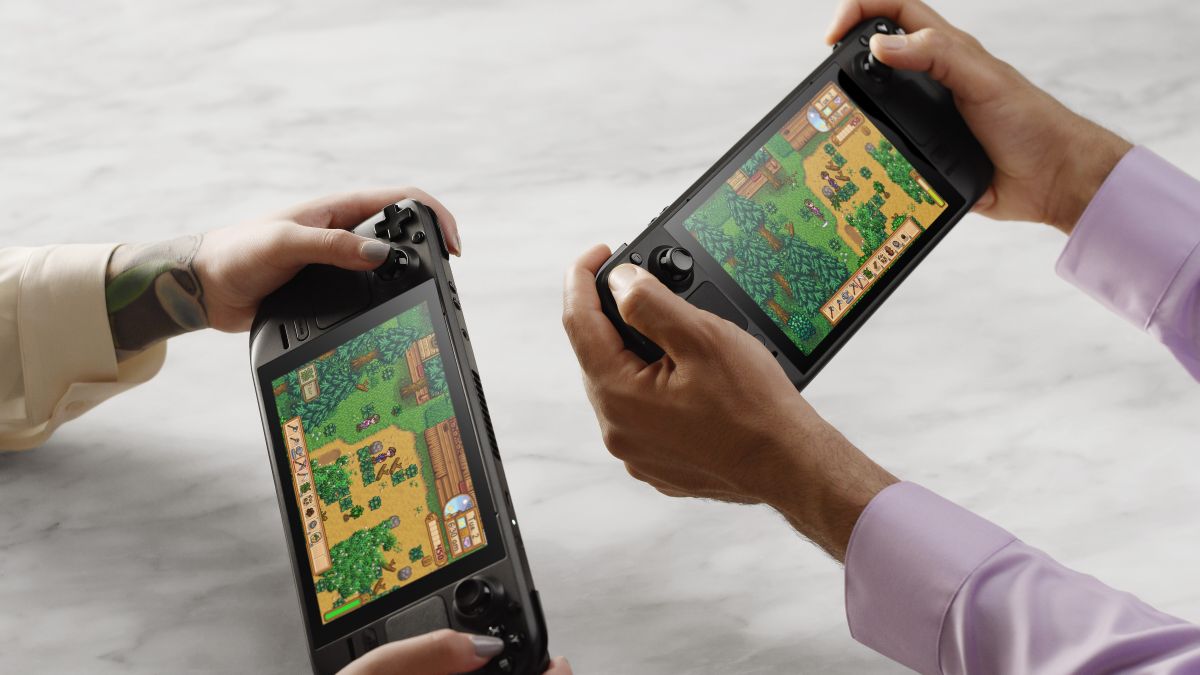Steam Deck 2 could be way more powerful – and might feature an unexpected twist
Future Steam Deck could bring VR into the mix

With the Steam Deck launch now kicking off, Valve is already thinking about the sequel to its compact gaming PC, and how that might pan out – with some interesting initial nuggets of info coming courtesy of Edge Magazine.
In the Edge interview (via GamesRadar: 1, 2) with Valve’s co-founder, Gabe Newell revealed that the idea with the Steam Deck 2 is to make it even more powerful – no shock there, really – but also to ensure the device offers new capabilities that push forward with its portable nature, and offer something that a desktop PC doesn’t.
And that apparently could be something along the lines of virtual reality.
Newell said: “The first step is to let you play the great games that exist today. The second iterations are going to be more about: what are the capabilities that mobile gives us, above and beyond what you would get in a traditional desktop or laptop gaming environment?”
And he further observed: “One of the things [Steam Deck] represents is battery-capable, high-performance horsepower that eventually you could use in VR applications as well. You can take the PC and build something that is much more transportable. We’re not really there yet, but this is a stepping stone.”
What’s also interesting is that Newell noted that to Valve’s surprise, the most expensive version of the Steam Deck – the one with 512GB of storage, and a premium anti-glare screen – was the most popular with gamers pre-ordering the device. And by a good margin, so it seems.
Newell said: “That’s an example of us being a little surprised by what our customers are telling us. They’re basically saying, ‘We would like an even more expensive version of this,’ in terms of horsepower capabilities or whatever. You know, that’s why we always love to get something out there and ship it. Because we learn a lot from that, and it helps frame our thinking for Deck 2.”
Sign up for breaking news, reviews, opinion, top tech deals, and more.
Analysis: Valve shows it’s serious about Steam Deck development
It sounds like Valve is mulling a considerably more powerful Steam Deck for version two of the device, given that its thinking is being ‘framed’ by the realization that gamers are prepared to pay more than the company thought for its handheld.
The comment about VR seems more off-the-cuff, and potentially much further off into the future, but Newell certainly seems to be priming us with the expectation that the Steam Deck 2 will attempt to do something innovative around making good use of the advantages of its mobile nature.
That’s exciting, but of course, it seems very early for Valve to even be talking about the Steam Deck 2 – the first incarnation hasn’t even started shipping yet (though it’s about to).
Seemingly, this is Valve giving us some signals that it’s serious about developing the Steam Deck going forward, and this won’t be a piece of hardware that’s in any danger of falling by the wayside (like some other Valve projects in the past). From the early glimpses and testing of the device that we’ve seen, we’d be inclined to agree that the prospects are strong for this launch.
It’s not just surprising to hear Valve talking about the potential of the Deck 2 already, but also the nugget about the 512GB version being the biggest seller is a bit of an eye-opener.
That’s not something we’d anticipate being the case, either, seeing as the 256GB model looks like a good compromise in terms of pricing (and you’re getting a full-fledged SSD there, not the eMMC drive in the base model, which of course is tiny at 64GB too). Also, the SD card seems to be a viable option for additional storage from what we’ve seen in early testing floating around online – at least for some less demanding games anyway (we really need to test this properly ourselves, of course, before we draw any firm conclusions here).
It might also be the case that to some extent, the popularity of the top-end model could be something of a reflection that early adopters are more likely to be the kind of gaming enthusiasts willing to pay a bit more to get the best. That being the case, when broader availability starts to come through, and more consumers pick up the device – assuming it does indeed turn out to be the success Valve believes the handheld will be – we’d imagine that the most popular model would be a lower-tier offering, not the flagship. Time will tell...
- These are the best Steam games
Darren is a freelancer writing news and features for TechRadar (and occasionally T3) across a broad range of computing topics including CPUs, GPUs, various other hardware, VPNs, antivirus and more. He has written about tech for the best part of three decades, and writes books in his spare time (his debut novel - 'I Know What You Did Last Supper' - was published by Hachette UK in 2013).